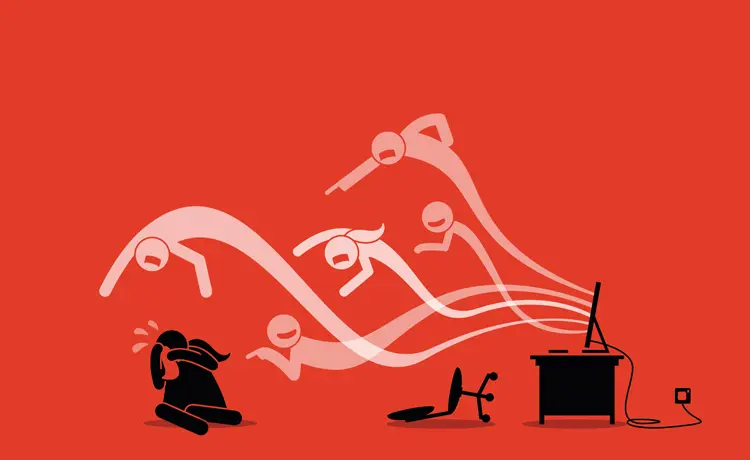Texting, apps, social media and online games are a big part of life for many kids and teens. While connecting online is cool, it also has serious risks. One of these is cyberbullying.
What Is Cyberbullying?
Cyberbullying is the use of technology to deliberately harass, threaten or intimidate others. Unlike physical bullying, in which the victim can walk away, technology allows for continuous harassment from any distance, and in a variety of ways. Examples of cyberbullying may include the following:
- Sending mean, insulting or threatening text messages
- Spreading hurtful rumors or lies on social media
- Uploading embarrassing photos or videos for everyone to see
- Breaking into someone's social networking account to pose as him or her
- Distributing confidential, private or embarrassing information online
What Are the Warning Signs?
We all want to believe that our children are happy and well-behaved, but it is important to remain attentive to what is truly going on in their lives. Unfortunately, children rarely report cyberbullying to an adult. It is crucial that you recognize the warning signs.Children Who Are Cyberbullied
Your child may be cyberbullied if he or she:
- Avoids the computer, cell phone and other devices.
- Appears upset or stressed when receiving emails, direct messages or text messages.
- Seems overly concerned about monitoring his or her social media accounts.
- Withdraws from family and friends.
- Is reluctant to attend school and other social activities.
- Has declining grades.
- Loses sleep or wants to sleep a lot.
- Expresses an increased level of sadness, anger, frustration or worry.
These signs could also point to other problems. If you notice your child’s behavior has changed, ask what’s up. If your child isn’t comfortable talking to you about it, suggest he or she speak to a school counselor, teacher or other trustworthy adult.
Children Who Cyberbully Others
Your child may be cyberbullying others if he or she:- Avoids conversations about using the computer and other devices.
- Switches screens or closes programs when you or others are nearby.
- Laughs excessively while using the computer or cell phone.
- Uses multiple online accounts or an account that is not their own.
- Gets agitated if his or her access to a computer is restricted or denied.
Advice for Parents
Monitoring online activity can be difficult, but you must remain vigilant of online harassment - especially if you have younger children. The guidelines listed below can help you prevent cyberbullying.- Be aware of what your children are doing online. Insist that your children tell you what they're doing online, let you "friend" them and give you all their passwords.
- Set safety rules about using technology. Use privacy settings to control who can see your children's profiles and posts.
- Teach your children to behave courteously online. Teach your children to stop and think before clicking "post," "share," "retweet" or "send."
- Talk About It! Start a conversation to get your children thinking about situations that could come up when using technology. Ask what they would do and how they would feel if they were a target or a witness of cyberbullying.
